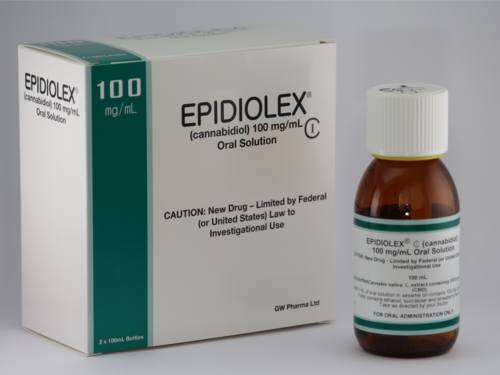A Reality Check for CBD Oil
/By Roger Chriss, PNN Columnist
The Food and Drug Administration’s recent approval of the anti-seizure medication Epidiolex has attracted a lot of new attention for CBD (cannabidiol). But enthusiasm was already on the rise. CBD is being promoted as a “new medical elixir” and marketed in everything from cosmetics to bottled water.
CBD was isolated in marijuana in 1940 and its chemical structure was characterized in 1963. It does not have euphoric effects and is increasingly being used in oils, edibles and other forms to treat medical conditions such as pain.
Last November the World Health Organization released its “Cannabidiol Pre-Preview Report”) stating that “CBD is generally well tolerated with a good safety profile.” The WHO report found “no evidence of recreational use of CBD or any public health related problems associated with the use of pure CBD.”
Last month the FDA approved Epidiolex, a CBD-based drug, to treat seizures caused by two rare forms of childhood epilepsy, Dravet syndrome and Lennox-Gestaut syndrome. It was the first -- and so far only -- marijuana-based drug to be approved by the agency.
“In terms of solid evidence, the one thing we really know about CBD is that it can be helpful for rare childhood seizure disorders,” Ryan Vandrey, PhD, a cannabis researcher and associate professor of psychiatry at Johns Hopkins University, told Health.com. “There’s not yet sufficient evidence to support its use for any other reason.”
This is not for lack of effort. Zynebra Pharmaceuticals recently tested a topical CBD product for osteoarthritis knee pain with mixed results. The Phase 2 clinical study did not meet its primary endpoint of reducing the average pain score, although there were some indications it improved function and reduced pain severity.
A small clinical trial of CBD for Crohn’s disease in Israel in 2017 was also negative, finding “CBD was safe but had no beneficial effects.”
GW Pharmaceuticals, the manufacturer of Epidiolex and Sativex, conducted a clinical trial in 2012 on CBD oil for pain due to spinal cord injury. The outcome was disappointing. The treatment arm of the study (55 subjects) and placebo arm (59 subjects) showed essentially the same level of improvement in neuropathic pain.
A 2015 study on CBD extracts for childhood epilepsy had puzzling results. Researchers reported in the journal Epilepsy & Behavior that “relocating to Colorado had a significant effect on response rates.” Drugs are not normally affected by zip code or time zone.
A recent review of studies on CBD oil and other forms of cannabis for the management of neurologic disorders was more positive, finding “there is strongest evidence to indicate benefits in treatment of spasticity and neuropathic pain in multiple sclerosis.”
CBD Safety Questions
But there are also cautions. Thorsten Rudroff, PhD, a professor of Health and Exercise Science at Colorado State University, told Neurology Advisor that more studies of CBD were needed.
“While cannabis seems to be effective for the treatment of MS symptoms like pain and spasticity, there are so many unknowns. For example, we don't know much about interactions with other drugs. Also, based on my own research, it seems that cannabis may further impair cognitive function in people with MS, especially in older adults,” Rudroff said.
There are safety issues as well. CBD oil has a good safety profile, but according to Food Safety Magazine, CBD oil products have problems with labeling accuracy, product quality and contaminants.
People with serious medical problems who want to use CBD oil need to reliably source a quality product. Medical users may have allergies, chemical sensitivities and, in the case of cancer patients or people with autoimmune disorders, a compromised immune system. For such people, purity and dose matter.
In addition, there are drug interactions to be aware of. Medline lists nearly a dozen medications that potentially interact with CBD, such as amitriptyline, ibuprofen and meloxicam, which are frequently used by people with health problems.
The decision to use CBD oil for medical purposes needs to be based on science, not marketing. As David Cassaret, MD, notes in his book, Stoned: A Doctor’s Case for Medical Marijuana: “Medical marijuana is becoming too widespread, and the risks are too great, to leave the patient to fend for himself, and to let the buyer beware.”
At present, however, CBD oil is very much a buyer beware world. And the current hype is not helping.
Roger Chriss lives with Ehlers Danlos syndrome and is a proud member of the Ehlers-Danlos Society. Roger is a technical consultant in Washington state, where he specializes in mathematics and research.
The information in this column should not be considered as professional medical advice, diagnosis or treatment. It is for informational purposes only and represents the author’s opinions alone. It does not inherently express or reflect the views, opinions and/or positions of Pain News Network.









